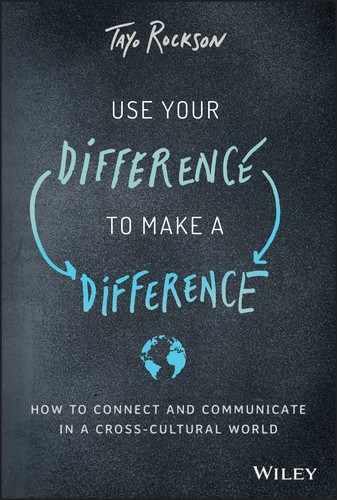5
Thinking Like a Sociologist
Everything I have described and discussed in this education section will prepare you to think like a sociologist. A sociologist's role is to study and understand social institutions, cultures, groups, organizations, and the way people interact across all these groups and institutions. Essentially, the role of a sociologist is to research, examine the way society is constructed around power structures, groups, and individuals, and examine the way multiple aspects of society behave and function. Following are different ways acting and thinking like a sociologist will help you become a better educator of self and environment—the big picture of different behaviors and the small picture of your role in society. I hope that this will help you develop the habit of seeing beyond the obvious.
Develop a Habit of Understanding Why Things Are the Way They Are
When sociologists observe something, they look beyond how people appear and act to understand why people behave the way they do by consistently looking for patterns. The late American-Austrian sociologist Peter Berger once said that, “even if one is interested only in one's own society, which is one's prerogative, one can understand that society much better by comparing it with others.” Sociologists constantly search for context because they want to understand the evolution of things as well as the deeper meaning behind any person, problem, or situation. They don't accept the “it's just the way it is” narrative.
Translation: Don't rely on stereotypes to make your final decision about a person or group of people. Don Miguel Ruiz once said, “Don't make assumptions. Find the courage to ask questions and to express what you really want. Communicate with others as clearly as you can to avoid misunderstandings, sadness, and drama. With just this one agreement, you can completely transform your life.” As you get to know a person or an environment, make an agreement with yourself that you will not make any conclusions based on your assumptions.
Study Melting Pots, Tossed Salads, and the Intersections in between Over Time
The melting pot theory is based on having a shared culture, having many facets of differing cultures within one single image or culture. Generally, there is one single unifying identity. The tossed salad concept implies that there are many diverse traits that make every place in a particular culture unique. Here, there is no single unifying identity. Some view assimilation as a force for unity, whereas others view it as an attack on identity. Some believe preserving heritage is a sense of pride and individuality, whereas others view it as a sign of stubbornness and division. A sociologist looks at these two concepts and the nuances in between before explaining their concepts to the world. This is particularly important because understanding the process of identity formation for individuals and societies over time plays a role in how institutions are shaped (more on this in Part II).
Thinking like a sociologist means challenging your assumptions, biases, and the complexities of who we are as individuals and the societies we build. There is hardly a one-size-fits-all process used when researching, asking questions, and observing. Approaching each study as if it is new and focusing on the context as opposed to the content of things is a habit that is regularly cultivated. You can do the same.
